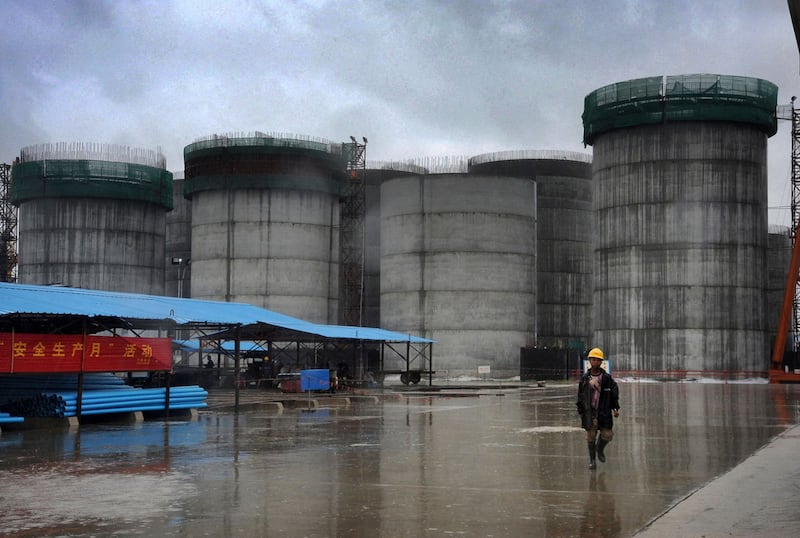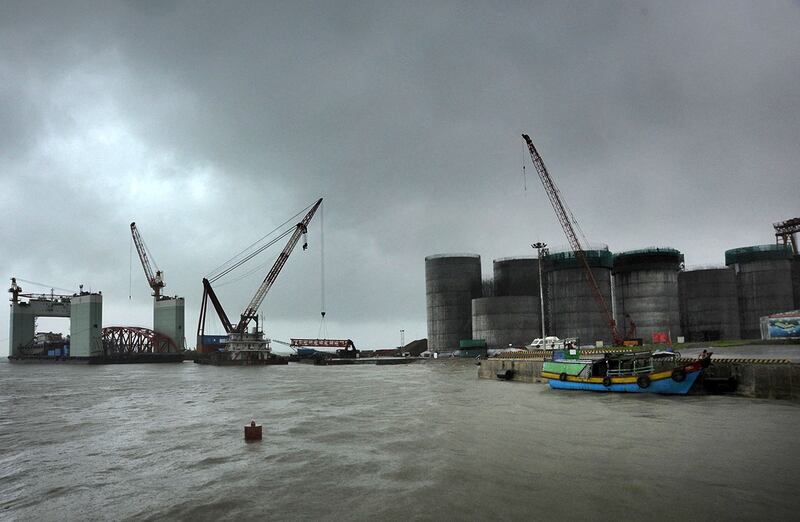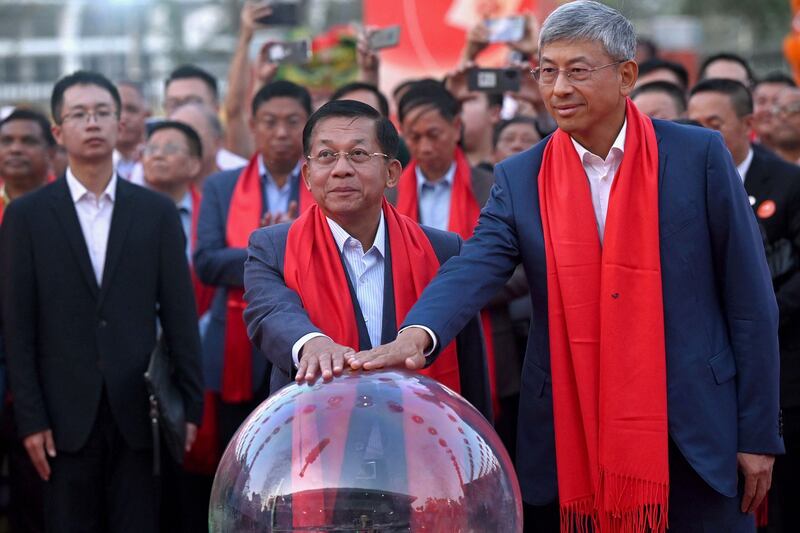Death and destruction is everywhere in Myanmar, and it’s getting worse by the day. But at least one country doesn’t seem to mind.
China has never wavered in its support for the junta since its Feb. 1, 2021, coup d’etat, and while other countries have condemned the military regime, pulled their investments, and refrained from trading with the nation engulfed in a bloody civil war, Beijing appears to be stepping up its engagement with the generals in Naypyidaw.
“After the military coup, it was easier for the junta to start new investments and resume projects that were paused during previous military regimes … because there are no more public protests against the projects like before,” Yein Lian Han, the head of the Shan Human Rights Front, told Radio Free Asia’s Burmese service.
“Most Chinese companies do not act accountable,” he said. “Since they cooperate with the military junta and prioritize their own benefits, neglecting the interests of the locals, there are a lot of negative effects for the people.”
Those who control the levers of power in China aren’t blind to the crisis afflicting their neighbor to the south; they’re simply adhering to Beijing’s diplomatic modus operandi – a strategy of non-interference in the sovereignty of the nations with whom it trades.
According to the junta's Investment and Companies Directorate, between the coup and February 2023, China invested more than U.S.$113 million in Myanmar. China is the second-largest foreign investor in Myanmar after Singapore.
Beijing’s willingness to play ball with a regime that has killed an estimated 3,225 civilians since seizing power comes as no surprise, said a Myanmar-based researcher who focuses on Chinese projects in the country. China has dealt only with the military leadership during the more than five decades of junta rule in Myanmar since 1962.

But the researcher, who spoke on condition of anonymity citing security concerns, said that the Burmese people see Beijing’s engagement as solely focused on its own bottom line – and warned that they are keeping score.
“It’s important for us to know the details of those agreements for transparency, but it hasn’t happened under the previous juntas and it’s far less likely under this one,” he said.
“So what happens is that there is an increasing amount of public dissatisfaction with Chinese investment. The more they invest, the more people resent them. Therefore, the Chinese government should reconsider investing in Myanmar amid such a situation.”
Multitude of new projects
In the first quarter of 2023 alone, Beijing and Naypyidaw have greenlit multiple China-led projects in Myanmar – including three wind power projects in Rakhine state and a hydroelectric power station in Kachin state – and hammered out a trade deal through which China’s Yunnan province will provide the junta with rice and fertilizer, according to state media.
And last week, the Institute for Strategy and Policy (Myanmar), which closely monitors China-Myanmar relations, confirmed that several businesses from both countries had agreed to implement an export production garden zone project in Myanmar’s Ayeyarwady region.
The researcher noted that China’s power projects in Myanmar are being implemented in the same areas where it has other development interests, suggesting that “they are only intended for Chinese-owned businesses,” not the benefit of the people.
According to the institute, China is focusing on salvaging its trade agreements and implementing economic corridor projects since reopening its borders after ending its zero-COVID policy in early January.
The group said Beijing is likely working to speed up its cooperation with the junta through local authorities in Yunnan province, which borders Myanmar’s Shan and Kachin states, while scrupulously avoiding any display of contact between top leaders.

Meanwhile, there have been ongoing discussions between China and the Union of Myanmar Federation of Chambers of Commerce and Industry, a private business association related to the military junta. A top official with the UMFCCI, who declined to be named, recently told RFA that China has a positive view of Myanmar's economic development and is preparing investments in the latter’s agriculture, seafood and meat production industries, as well as its energy sector.
Impact on the people
Members of the public in Myanmar who RFA interviewed for this story expressed wariness over China’s growing investment in the country, saying its projects have mostly made their lives more difficult.
“There is no local development and residents often lose their businesses [due to the impact of the projects],” said a resident of Rakhine state, who claimed that his work as a fisherman had dried up after a Chinese project was built in the region.
“We aren’t allowed to fish as freely as before. A family could make ends meet if they fished for a month in the past. But now, they can’t get enough to sustain even if they drop their nets for a whole year.”
Myanmar’s shadow National Unity Government has taken a stronger stance. While it has not specifically mentioned China, in 2021 the NUG declared any post-coup foreign investment in the country “illegal” because it was negotiated with and benefits an illegitimate government.
Anti-junta People’s Defense Force paramilitary groups have targeted foreign-backed infrastructure through which the junta profits, saying such funds are used by the military to attack the people of Myanmar.

Attempts by RFA to contact China’s Embassy in Yangon about the country’s increased investment in Myanmar went unanswered Friday, as did attempts to reach Aung Naing Oo, the junta’s minister of economy and commerce.
But Bo Bo Oo, China relations officer for the deposed National League for Democracy party, told RFA that any nation that does business with a junta that is killing its own people can expect a public backlash.
“The whole world knows that the junta, which seized power illegally, has been brutally oppressing the people of Myanmar,” he said. “Investments that the junta benefits from will definitely be opposed by the people of Myanmar, whether they are from China or any other country.”
Translated by Myo Min Aung. Edited by Joshua Lipes and Malcolm Foster.

